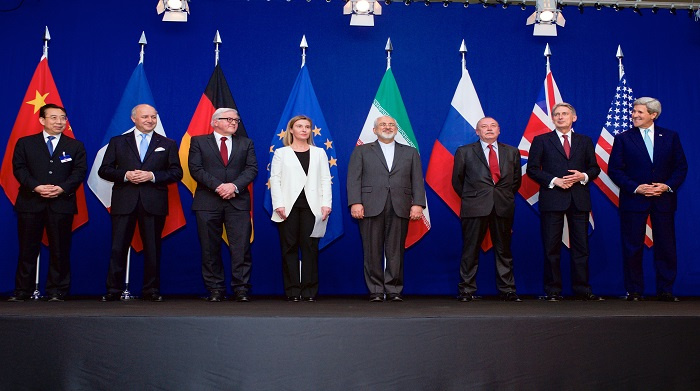Countdown for JCPOA Starts

As it turns out, delays are not denials anymore when it comes to Iran’s nuclear dossier. The JCPOA implementation day, dubbed as the end of a beginning, is expected sooner rather than later. An International Atomic Energy Agency report verifying Iran’s compliance with its commitments under the JCPOA is expected to be issued today, triggering sanctions relief for Tehran, a diplomatic source quoted by Reuters said on Friday. Sanctions relief would terminate financial and banking embargoes imposed on Iran and free the country’s frozen assets.
Iranian Foreign Minister Mohammad-Javad Zarif and the Head of Iran’s Atomic Energy OrganizationAli-Akbar Salehi head an Iranian diplomatic delegation that left Tehran this morning for Vienna to take part in a press conference to be attended by EU Foreign Policy Chief Federica Mogherini expected to issue the JCPOA implementation joint statement.
Harbinger of change
The nuclear deal has been hailed as a clarion call for diplomatic solutions but is also expected to foster Iran’s economy. United States President Barack Obama issued an executive order on Friday, delegating to Secretary of State John Kerry the authority to take steps to ease some sanctions upon the expected IAEA verification. The order empowers Kerry to allow the export of civilian passenger aircrafts to Iran, formerly forbidden for over 35 years. A U.S. official said this was “one of many preparatory steps” Washington had to take to ease sanctions once the IAEA verifies Iran has met its nuclear obligations, Reuters says.
Iranian President Hassan Rouhani’s first visit to Europe is also expected to jumpstart economic ties with the country’s traditional European partners Italy and France. About 60 economic activists from private sectors will accompany Rouhani in his European tour, Deputy Foreign Minister for Parliamentary and Consular Affairs Hassan Qashqavi was quoted as saying by IRNA.
In a statement, French President Francois Hollande's office said Wednesday "several accords will be signed by French and Iranian ministers covering a variety of sectors, in particular political dialogue, economic cooperation, air transport, health, and agriculture."
In mid-September, a delegation of 100 French business leaders, including oil group Total, Airbus, and carmaker Peugeot visited Iran in a bid to set the groundwork for business accords.
German industry groups have said exports from Europe's largest economy to Iran could as much as quadruple in the next few years due to the nuclear deal and companies like Volkswagen and Siemens as well as thousands of smaller family-owned firms are eager to claw back their dominant role in shipments to Iran.
The nuclear agreement and the opening of Iran’s market to the world is welcome not only in the West but also in the East. Russia, India, and China are great economies eager to boost trade and investment with Iran. Even lesser economies are prepared.
Deputy Commerce Minister of Thailand Suvit Maesincee told reporters on Friday that trade and investment between Bangkok and Tehran could reach $2 billion within two years after the sanctions are lifted.
While the world is preparing to celebrate the implementation day, Saudi Arabia and several of its staunch allies have recently cut diplomatic and economic ties with Iran in a new round of tension over the execution of prominent Shiite cleric Sheikh Al-Nimr together with 46 other individuals and the consequent storming of the Saudi embassy in Tehran by enraged protesters.

